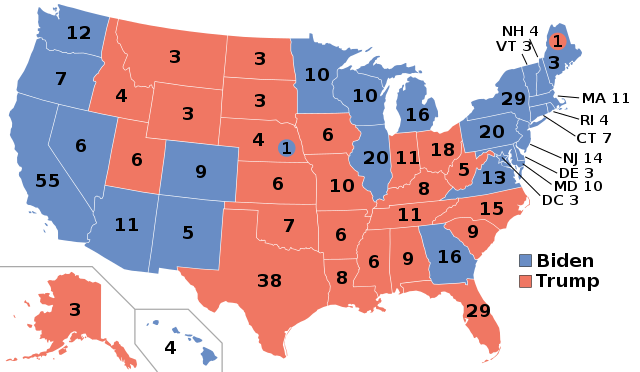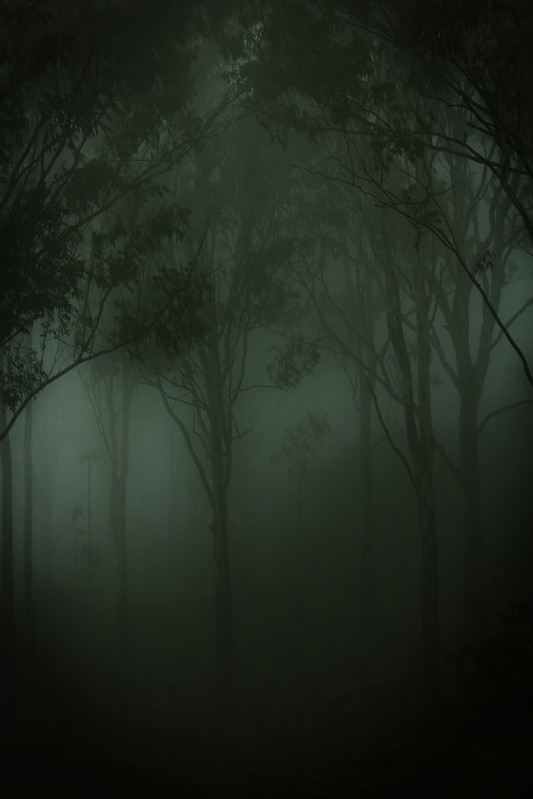Last year I sat in a room darkened by automatic shades where collections of pixels were cast over my head to the wall-swallowing screen in front of me. I think there were nine of us in total, not counting John, charting the spectrum of sleep deprivation when we took our seats in the same room every other morning. John gave us time to set our bags down and take the plastic lids off of our cups, steam casting shadows on the screen. Then the lecture would begin.
My favorite one happened toward the end of the year, after we left Yamini on the bus to the art museum and before the solstice. John assigned us an article on the effect of daylight over the course of a year in the refectory of Santa Maria delle Grazie, one of the dusty, orange-scented temples of Renaissance art. A west coast professor with a name like “Justin” or “Jason” had created a digital simulation, one that projected light through the windows of the refectory and onto its most famous inhabitant: The Last Supper. The article was accompanied by a video of the simulation, the graceful and harried arc of the rectangles of light—reverse shadows, as I thought of them—thrumming through the room towards and away from Jesus. Their edges were stark, then soft, glancing off when you thought they would slow to a stop. I watched it over and over, thinking of the years Leonardo must have spent drafting the composition. I imagined his mythical hand reaching to trace the corner of the reverse shadow, how he must have accounted for every celestial position, every season, in the cartoon. Puffs of pigment embedded in the wrinkles of his hands as he worked. The careful precision in adapting a sketch—unbend Jesus’s finger, inflate Paul’s robes—to brush up against the light in a perfect suggestion. Different meanings for different days, different morsels on the table illuminated. A Christian’s Stonehenge.
I do think John may have been considering, when he assigned us this piece, the ritual of our mornings in the classroom, staring at the screen. I had taken an afternoon seminar in the same room, felt the frustration of light from the windows blocking out the slide. Though my other professor was more meticulous in her analysis, made no claims that couldn’t be supported, she wasn’t as careful about switching down the blinds as John was. He did try to insert himself into the art, in the well-intended way teachers do. He had a habit of twisting himself around to mimic the paintings he showed us. In the darkened room, drinking weak coffee with too little cream, I would feel somewhat drunk on the few stimulants of morning. Reclining in our chairs, we took in the projection, the Titian, the Donatello, the Ghiberti. And in front of the screen, distorting the streams of light, would be John, posing: contrapposto. Figura serpentinata. Pietá. Venus pudica. Sometimes, he said, “Come on! Everybody do it with me. It’s early, get up. Get moving,” and, begrudgingly, we would rise from our seats, slowly resting our hands on opposite hips, dropping our knees and looking up. None of us tried as hard as John. He was unbound by the judgments of his nine students or by the confines of his 6’2”, 210 lb body.
I know his dimensions because his Tinder profile was visible to everyone on campus, either because he hadn’t figured out how to adjust his settings to exclude 18-year-olds or because he was open to meeting 18-year-olds. Even with a wide radius, our village totaled only 2,000, townsfolk included. He had to have known.
We did laugh at him, that year. I’m sorry for it because now I think he couldn’t have known that we weren’t laughing at his impossible poses, his attempts to mimic Mannerist sensuality and to make us laugh early in the morning, but at him. The village was small and we were young. We didn’t think ourselves capable of objectification; we had learned to be better than that. We thought we knew everything about him.
I am curious—I check the course catalogue. He’s offering the same class this year, High Renaissance Art. The students will have just turned in their final papers. I wonder if he is still allowing any topic for the final. Mine was on a reliquary, a Baroque one, which contained something—a finger? a wrist bone?—of St. Zenobius of Florence. When I first went to John’s office hours to run it by him, he asked me if I had been to Florence, and I said that I had. He pulled up Google images of the duomo, the baptistery, the Galleria Uffizi, all famous sites for people like us who see them first in dark rooms. I told him about St. John’s, the Baroque cathedral in Malta, and Google showed him the skeleton mosaics in the floor, the glass reliquaries barely covered in shadow, shabby bodies openly decaying within.
“So you’re into this, creepy stuff, right?” He asked me.
“Um… I suppose?” I did like studying relics. I had seen an exhibition at the Chicago Art Institute about them a few years prior. Religious art requires so much imagination, so much suspension of disbelief. Relics are the closest that academic atheists get to that spectacular nothing; we can hold them over Medieval Christians’ heads. Here is the last shred of your saint. Here is his miracle rib, turned to dust lifetimes ago. Work your miracle now, we tempt. I dare you.
And yet, our study of their ways proves that their miracles are real—that their saints return.
“You have to go to Milan next time you’re over there,” John said. “They’ve got some really wacky creepy stuff.”
I nodded, said it was on my list. A few weeks later, when I emailed him to change my topic—too much of the research I was finding fell outside of the High Renaissance—he just replied, “Cool stuff.” I don’t think he knows how to change the settings on his Tinder.
Late in that semester, we took a field trip to the Cleveland Museum of Art. It was college-student early on a Saturday morning, the night after a sorority formal themed “Sinners and Saints.” John’s email had said to meet at 7:45 by the village post office, so that’s when I arrived, shivering in my cheap wool coat and squinting at the sun glaring off of the curb’s whiteness. It was early winter in Ohio, and I knew that the bright crust of snow wouldn’t last the morning. It was the kind of weather that gave me migraines—I never understood the effect that the barometric pressure of dark days had on others. I was nauseated by the sunlight and the stale drunkenness in my stomach. I started seeing rainbows against the slush in the street.
Only John was there when I approached the post office. He was wearing a hand-knitted cap, breathing out what could have been smoke but was probably just the warmth of his breath. I wasn’t sure I wanted to talk to him alone that early, especially after I’d witnessed his Friday night routine earlier that fall: eating alone at a Taco Bell the next town over. I’d seen him from a corner booth I shared with some friends after band practice, but he didn’t see us. The next Monday, he told my class he’d been out of town for five days.
I passed him and went on to the village market, its customary bowl of water for visiting dogs frozen over. The market was closed, as was the bookstore, as was the tiny coffee shop on the corner of the campus’s one main street. The sun rose as I made the slow loop to tug on each door handle. I kept my eyes on my boots and their impressions in the thinning snowbank.
When I returned to the post office, the bus was there, and a few other students were milling about, most of them hungover. Someone had had the foresight to buy saltines the day before and was handing them out like grade school valentines.
“Good to see you again,” John said to me as he stepped onto the bus. I lifted my head up to glance at him, to make sure he was talking to me, and winced at the unfiltered sunlight. A couple of other professors appeared, and one by one, the bus was full of academics disguised as fleece bundles. We reclined in the dust-ridden seats as we did in the classroom, blinking slowly to invite any touch of a daydream. I screwed my eyes shut for the ride. My friend Yamini, a sophomore, threw up on the way there.
When we got to the museum, I hadn’t seen Yamini, and I wondered if she was in the bathroom rinsing off her shirt. I told John.
“I’m sure she’ll be fine,” he said, shrugging at a Michelangelo sketch. It was hung in aging silver against a deep orange wall the same color as the artist’s chalk. The figure was gnarled with muscle, strange growths ready to pop out of him like bubble wrap. “She’s a strong young woman.”
We stared at the sketch together for a moment. Then, he said, “I hope she didn’t get kidnapped.”
I turned to him, incredulous, and said, “Why would you say that to me?”
For a moment, John was unblinking stone. Then, quietly, he said, “I dunno.” It was the last time he brought up his missing student.
I moved on to the American wing and he remained with Michelangelo, gazing not to admire but to appreciate. When I saw him later, in a hall of Greek sculpture, John was walking slowly with my prettiest classmate, laughing and gesturing to the crumbled toe of an ancient marble king.
Yamini showed up later that day—she had been locked in the bus bathroom when we got off and had to beg the driver to take her back to the museum. Fatigued, she sat beside me on a bench, fanning herself with a special exhibit ticket. I faced away from her and sketched the Cleveland Apollo, staring at his back until I felt like I could see the oxygen eating away at his bronze skin, turning him green.
Four months later, all students were told not to return to campus, and we stayed inside our bedrooms for class, staring at smaller screens with strained eyes. I began to drink every night, not binging like on campus, but full glasses of wine with twisted stems I could twirl between my fingers. My computer was next to my window, so every day at around 3PM I had to move it or to stop working all together. The light cutting over my screen made me ache, for darkness, for colder days, for the long gravel path I would take to and from lectures, to and from the shops, to and from my apartment, always circling, a dozen times in a day. The village was laid out like a twig, a long, thin path with a number of branches, but we walked it like it was an egg, a circle, a revisiting, because every day brought us the same stones in our shoes, the same hopeful people, the same wild and electric shadows cast on the lawn. The same outlines of scandal that we clumsily filled, the same eyes sending glances of wonder and gratitude and disgust. It is difficult, I have found, to suspend one’s disbelief when there is no sense of constancy in the future. How cruelly we all were separated from our revisiting.
John is a statue now. The way I remember him—the way many of us do—will always be those last class sessions, walking the Etruscan hall, the strange and invasive screenshots we all had of his Tinder profile. We can’t go back, so we can’t revise our conceptions, and the selfie of him hoisting a horseshoe crab off the beach is growing as strong as my memory of him in the classroom, obstructing the screen. I wonder how much of that image he would reclaim, if he could.
All this I’ve just remembered because I sent John’s article—about The Last Supper—to my godmother, who is a self-described pagan, and dedicates a surprising degree of faith to the world decaying around her. It occurs to me now, watching the refectory simulation again, that Leonardo must’ve spent much of his years of work waiting, just to see all the permutations of sunlight for this mural overlooking a cafeteria for nuns. Were they little adjustments? The angle of Jesus’s left pointer finger, erased and redrawn on the solstice to brush against the corner of the window’s light? Did he have to adjust the perfect symmetry of a face to avoid an accidental anointing? Or did he sit in the refectory, sketching the outlines of the windows first, standing in the path of the migraine light when it came? When I think of him now, he is always waiting patiently, perhaps smoking or just breathing. Waiting for the year to reveal to him where Jesus would point.
Photo at the top of the page: “Lay Brothers’ Refectory” by tj.blackwell is licensed under CC BY-NC 2.0.



